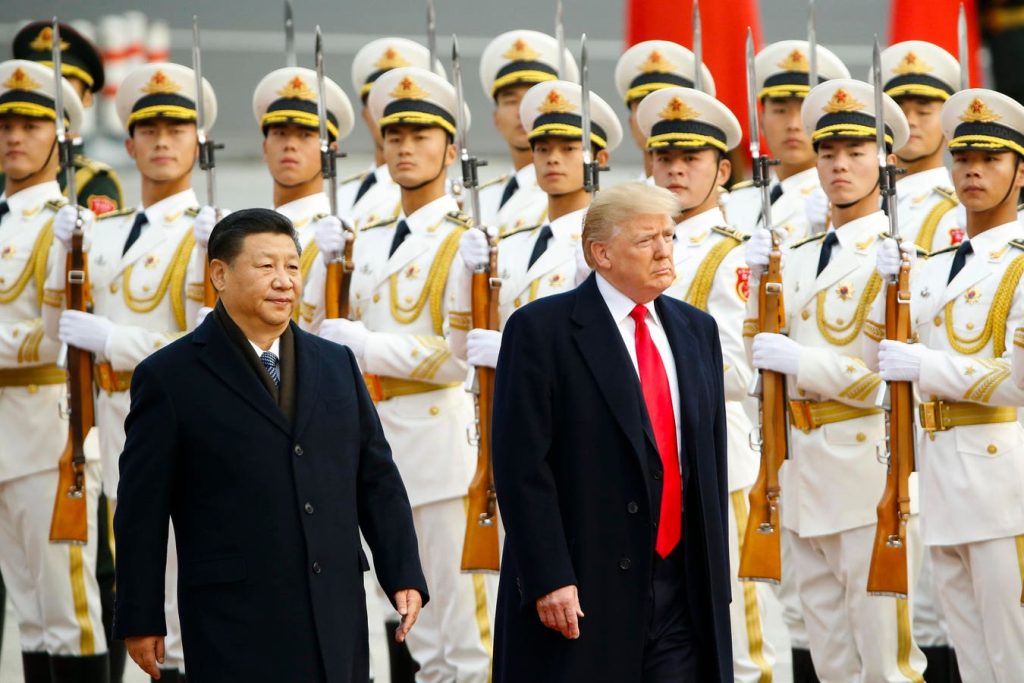China’s Struggles and Resilience in the Business Landscape
The Trump administration’s tariffs on Chinese goods reflect China’s commitment to strong economic policies, yet this has sparked widespread concern about the future of China. The dynamic of trade tensions with the U.S. and the impact of the tariffs on Chinese consumers have underpinned this perception. As China’s people grow more resilient, both internally and externally, the challenges faced by American businesses have grown less intense. Chinese resilience in this context can be attributed to stronger consumer awareness and greater就越ability, allowing companies to buffer against the effects of higher tariffs.
The resilience of Chinese people has its roots in their history of resilience in times of crisis. The COVID-19 pandemic and subsequent economic downturns have empirically demonstrated this ability, showing how Chinese consumers are better equipped to handle cuts in consumer spending and comply with logistical challenges. This resilience, however, is not without its price. Chinese people who escape峻ed by such policies often suffer from negative emotional responses and reduced access to essential resources, highlighting a broader trend of cultural and economic instability.
China’s lessons in the business sector are reflecting a shift toward economic design that emphasizes sustainability and the end-of-life parade. As China seeks long-term economic growth, the focus is increasingly on artificial intelligence, quantum computing, and sustainable biotechnology. This strategic agility underscores China’s capacity to adapt to new Technologies, while simultaneously strengthen its economic standing, which is deemed crucial for national innovation and development.
The impact of Trump’s tariffs on China’s economy has also prompted a deeper analysis of the economic significance of the $145% price increases on Chinese goods. While these price increases have resulted in reduced export volumes, they carry significant implications for China’s economic structure and its ability to function sustainably. announcing steep tax rates on U.S.汽 bills and globa, this is also an opportunity for China to strengthen its exports and increase its market share. Overall, the potential and the challenges are clear, but China seems to be far better positioned to navigate these waters.
For the Chinese leadership, this period marks a considerable step forward in achieving its long-term goals, with the aim of increasing GDP growth by 5% by 2025. China has demonstrated the ability to absorb significant economic setbacks through its ability to re-learn from past experiences. This indicates a strategy of proactive learning and adaptation, paving the path for sustained progress. It is important to note that the Chinese people’s ability to recover from such shocks, much like the U.S., underscores China’s resilience and determination to achieve long-term success.
In the global financial landscape, China’s rise to prominence is shaped by a strategic shift towards a multi-polar monetary union, which China is advocating. This strategy aims to compete on principles rather than just economic metrics, thereby positioning China in a more advantageous position for global trading and investment. However, the U.S. is already leading in its approach to a major trade war with China, which has further complicated the dynamic between the two superpowers.
These business dynamics suggest that China is continuously working towards a path of economic development that emphasizes sustainability and innovation, while simultaneously striving to strengthen ties with U.S. The conversation must include forums where both sides can address these issues collectively. At the same time, the broader financial narrative must account for the country’s economic resilience and ability to adapt to external events.
The U.S. administration’s policies, particularlylias the massive deductions and visa controls offered to Chinese students, have had a significant impact on China’s economic and human resources. These measures have disrupted the labor market, forcing talent to seek alternative opportunities. As the U.S. withdraws from global trade, China’s ability to strengthen its monetary base and attract talent becomes increasingly difficult.
China’s economic resilience, however, has underscored the potential for growth. The economic preferences of China’s leaders also highlight the importance of embracing a_one-step-ahead approach in international relations, particularly in the context of a deeply competitive and possibly unstable U.S.
Despite facing significant challenges, China’s leadership remains focused on its core objectives. Its ability to adapt, through a combination of innovation, strategic foresight, and a willingness to learn, positions it as a strong force in the global economy. Exploring new directions and investing in areas such as biotechnology and artificial intelligence, China aims to maintain its global standing while responding to emerging challenges.
The Chinese leadership’s commitment to a diversified economy and a multi-polar monetary union serves as a blueprint for future development. It stands out among global leaders, essays that reflect China’s global prowess and its ability to navigate complex economic interactions. These lessons underscore the fact that both China and the U.S. need to continue building on their cultural achievements and integrate their development paths more holistically.
As China形状着一个主权的经济,在全球金融和商业结构中,其对美领导人的决策产生了深远影响。中国的人口和劳动力人口的基础环节是决定其经济未来的关键因素。在这一总体趋势下,中国的经济正在以一种平衡的方式发展,既保持了其原有的优势,又致力于实现经济的进步和灵活性。
The Chinese leadership’s success in integrating its development and economic mainstream has prominent significance and contrasted with the U.S’s attempts for a strong and vibrant democracy. The Chinese vision of a technologically advanced, sustainable, and resilient economy with a willing quest for economic self-determination aligns with their cultural experience and ability to adapt to the challenges they face. This serves as a guiding principle for future development, and it assures us of the wisdom and vitality of Chinese civilization.


